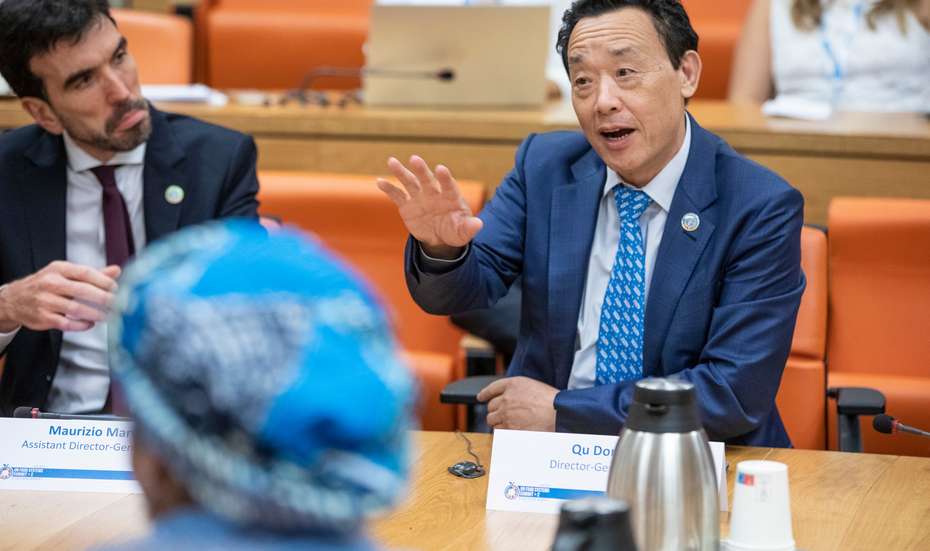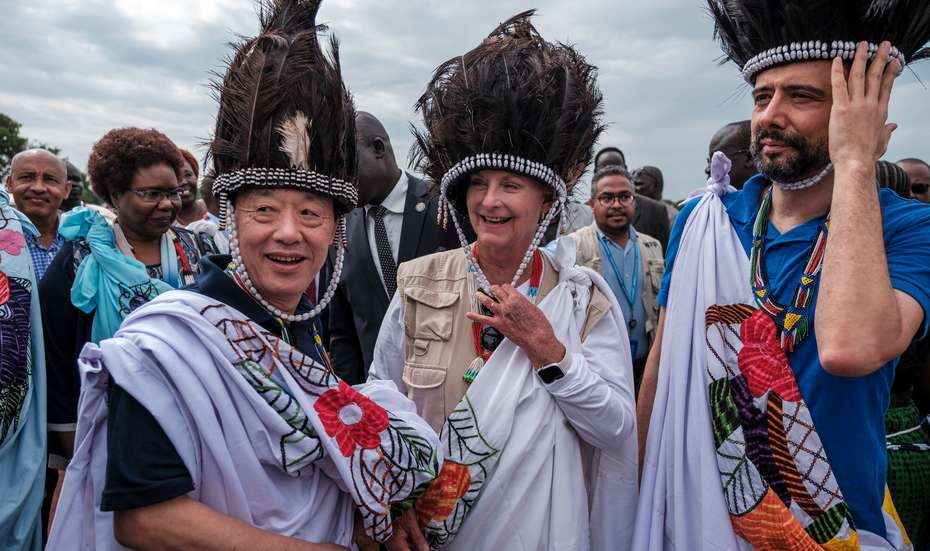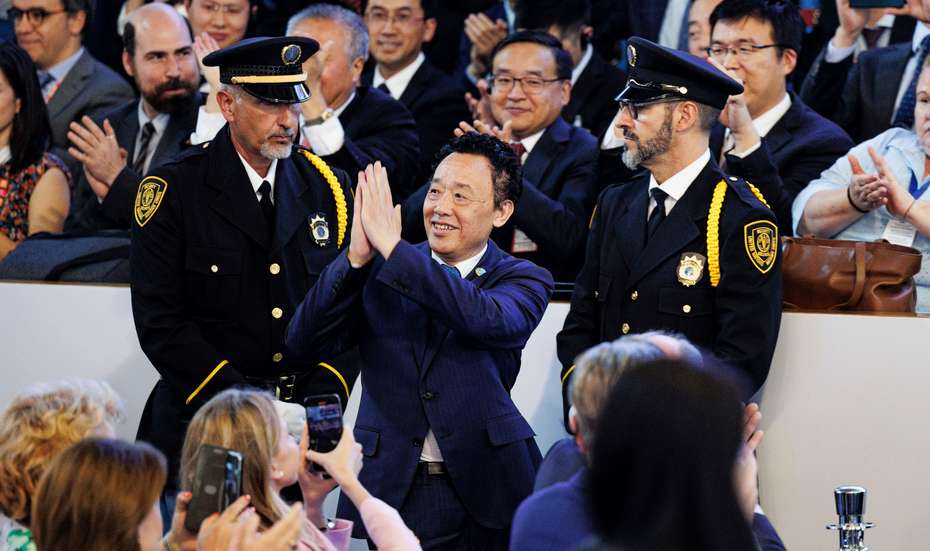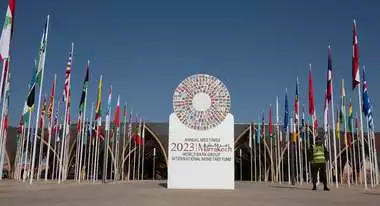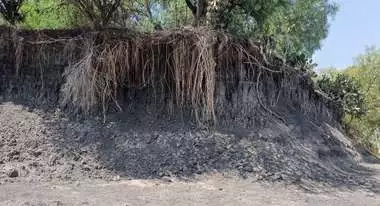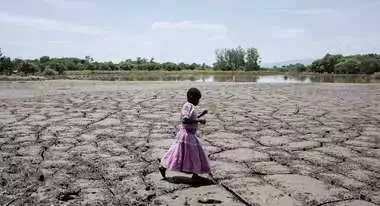The United Nations and China's Rise: Qu Dongyu Remains FAO Director-General
As a hands-on reformer, Qu has initiated programmatic and institutional innovations. But to what extent does Beijing shape its multilateralism?
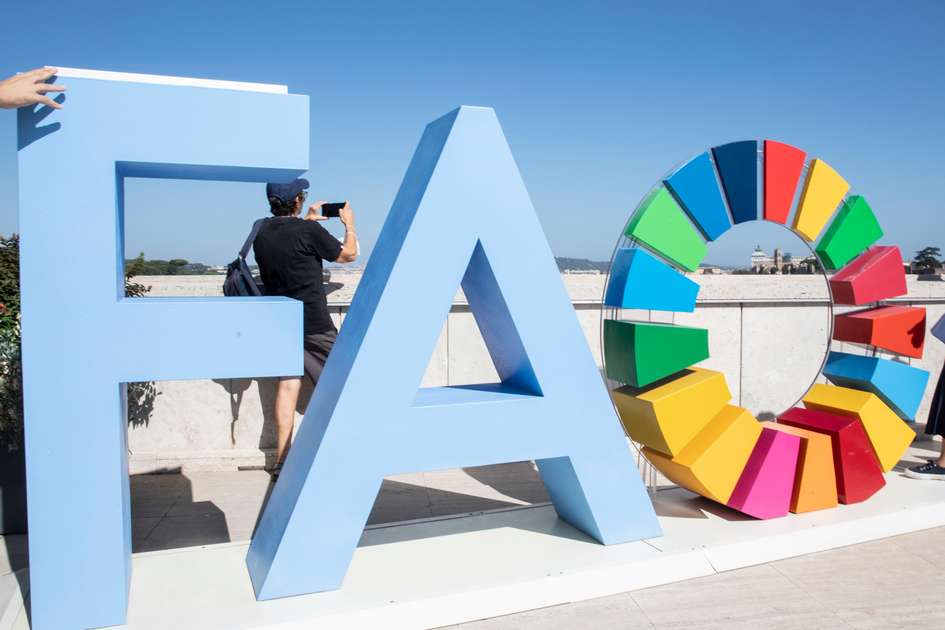
Qu Dongyu was re-elected for a second term as Director-General of the Food and Agriculture Organization of the United Nations (FAO) in July 2023. He received 168 out of 182 votes from member states, there was no competitor. With a budget of $2,6 billion (2022), the FAO is among the larger entities of the United Nations (UN). Its importance has arguably increased during the global food crisis, which has been exacerbated by the Covid pandemic and the war in Ukraine.
Qu’s re-election is politically relevant as his leadership of the FAO should also be seen in the context of China’s global rise. The robust diplomatic support China lent to his first candidacy in 2019 may serve as an indication of China’s strategic interests in the FAO, in view of food security at home, but also president Xi Jinping’s ambition to establish China as a global power in a new, multipolar world order. For developing countries, this means a welcome change. Western states, particularly in Europe, remain skeptical.
Qu Dongyu as an energetic reformer
During his first term, Qu proved to be a hands-on reformer, initiating an institutional and programmatic renewal of FAO that has won respect even from his critics. A reformed and streamlined management structure was intended to make FAO more agile. While it was seen as overdue, it has arguably also strengthened Qu‘s position as Director-General. Qu, a trained scientist who studied horticultural science, plant breeding and genetics, has also worked to professionalize the FAO staff.
On the programmatic level, Qu put a focus on technology, innovation and data as „accelerators“ in the fight for global food security. The use of data for development is an area in which FAO has emerged as leader in the UN system together with UN-DESA, a unit in the UN Secretariat also led by a Chinese national. At the country level, FAO initiatives such as „1000 Digital Villages“ (https://www.fao.org/platforms/digital-village-initiative/en) are designed to demonstrate the potential of digitalization in rural regions.
Qu’s flagship project is the Hand-in-Hand Initiative (https://www.fao.org/hand-in-hand/en). At its heart is an impressive geospatial platform that offers socio-economic and biophysical data for identifying underdeveloped regions and opportunities to boost agricultural production. It supports FAO in identifying investment opportunities and mobilizing international partners. This reflects a new approach of positioning FAO as a ‘broker’ that brings together developing countries and investors based on their mutual interests.
The focus on investments is also an indication of how FAO has opened up to the private sector under Qu's leadership, especially to the corporate world. FAO partnerships with Syngenta, a Chinese agricultural group, with CropLife International, an association of agrochemical companies, and with the World Economic Forum mark a clear change of course from his predecessor José Graziano da Silva.
Qu also succeeded in putting FAO in the public spotlight. With the creation of the World Food Forum (https://www.world-food-forum.org/), FAO now has its own annual big event. It was initially envisioned as a youth forum but then became the central platform for the Hand-in-Hand Initiative. Participation is broad and high-level. FAO also issues important global analyses in cooperation with the World Bank, OECD, and World Trade Organization, among others. It has an increasingly strong presence at the G20 and UN climate conferences. All this helps to attract political attention to global food issues.
Other things have declined in return. The term „rights“ is virtually absent from Qu’s speeches. The Right to Food, created in the 1990s and favored by Germany, has become an „absolute wallflower“, as one representative from civil society lamented. Equally marginalized in FAO policies is the agroecological approach, which is based on the principles of ecology, sustainability and social justice and which was embraced by the FAO under predecessor Graziano da Silva.
Has Chinese influence in the FAO increased?
The above-mentioned reforms can easily be associated with Chinese approaches and interests and have led to suspicions among Western observers of China instrumentalising the FAO. However, it is not easy to differentiate legitimate bilateral influence, on which the UN depends to some extent, from power politics in the national interest. What counts is to preserve the integrity of the FAO: The neutrality of the organization and its officials, transparency and accountability to intergovernmental bodies, and alignment with the overall UN norms and values.
Qu's election and leadership, celebrated in promotional videos and FAO press statements that sound just a bit too proud, smack of Chinese propaganda, as do the slogans of his initiatives, such as the "Four betters" (better production, better nutrition, better environment, and better life) or "One country one priority product." Beyond stylistic issues, it is noteworthy that a disproportional number of leadership positions related to Qu's priorities have been filled with Chinese nationals. That Qu acts in close coordination with the Chinese embassy in Rome, which according to an investigative documentary aired on German TV also keeps an eye on Chinese FAO staff, is considered rather likely by diplomats. Less clear is how far this goes beyond bad practices elsewhere in the UN.
The Hand-in-Hand Initiative is seen by critics as a project to prop up the Belt and Roads Initiative. At least individual projects, such as those in Panama, São Tomé and Príncipe or Laos, can be linked rather directly to China's geopolitical and economic interests. Respecting human rights, which in the UN is a guiding principle for all development activities, plays a secondary role in these projects at best. However, it is difficult to determine what benefits China actually derives from the Hand-in-Hand Initiative compared to other member states. The necessary transparency is lacking here.
The war in Ukraine has once again made it clear that Qu has no desire to align the FAO with Western perspectives. Qu insisted on a politically neutral position and resisted very explicit pressure from Western states to condemn the war of aggression against Ukraine as such, as a breach of the UN Charter, and as the cause of increased food prices. If anything, his comments reflect the Sino-Russian narrative of an increasingly multipolar world order. He also invoked this narrative to support the case for his re-election with developing countries.
Other areas of tension
The instrumentalization of the FAO, ultimately difficult to prove, is not the central issue for many member states and other stakeholders. They focus on more important issues. European states complain that FAO’s management is resisting demands to establish adequate intergovernmental oversight for data collection and analysis, an area that has expanded massively under Qu. In particular, they are calling for specific guidelines on how FAO should handle data in a transparent manner that is consistent with international law, respecting data integrity, privacy, and property rights. FAO considers this an internal matter. Regarding accountability, there was also the issue of Qu's unprecedented rejection of a routine inspection of FAO by the Joint Inspection Unit, an internal auditing body of the UN. A critical assessment could have affected his chances of re-election. Now a new date is to be set.
Civil society observers are concerned that the establishment and strengthening of informal platforms accommodate more powerful actors, whether states or the corporate entities. The World Food Summit, co-sponsored by the FAO, and the World Food Forum are seen as parallel structures that may work to the detriment of inclusive intergovernmental negotiations, undermining also the voice and participation of nongovernmental organizations. The well-funded secretariat of the World Food Summit has been housed in the FAO, directly linked to Qu. "Wild and opaque" are the decision-making processes there, according to one civil society representative.
The loser is the Committee on World Food Security (CFS), in which all member states and civil society groups participate and where standards and guidelines are developed that are also relevant for the FAO. Qu's two predecessors therefore did not really like the CFS, but supported it nonetheless. Under Qu, however, tensions are rising. He has moved the annual meeting of the CFS from its traditional date on World Food Day (16 October), which is now occupied by FAO’s own World Food Forum. Unease is spreading among civil society groups. They perceive less respect for the principle of self-organization, fearing co-option instead. The opaque focus on youth in the World Food Forum is an example.
Qu's understanding of development has also received some criticism. Development is seen today as a complex problem that requires an integrated approach across sectors and even countries. The 2018 reform of the UN development system was meant to give a practical meaning to such a concept of development. In the eyes of critical observers, Qu relies too much on a "mono-causal" approach focusing mainly on agricultural production increases, rather than prioritizing sustainable transformations.
It would be short-sighted to see only Qu, or China, behind these contentious priorities. The focus on technology, data and the private sector is also shared by the United States. The upgraded Partnerships unit in FAO (and thus the Hand-in-Hand Initiative) is led by an American FAO Deputy Director-General. The U.S. has increased its voluntary contributions to FAO from $158 million in 2020 to $449 million in 2022. In other areas, such as civil society inclusion, interests among member states are mixed.
Fuzzy contours of ongoing geopolitical change at the UN
In the end, these tension did Qu no harm. He was able to push through his initiatives, even against resistance. FAO’s funding through voluntary contributions increased significantly during his first term, and not only because of the larger U.S contributions. Recently, member states also approved an increase of FAO’s core budget which is based on compulsory contributions. It was a small increase, essentially an inflation adjustment, but the first one in 12 years. Western states did not even nominate an opposing candidate in the past election. They are coming to terms with the new reality. They neither want a UN without China, if that is the alternative, nor too much conflict in the UN. In any case, it also needs to be stressed that Western states have also not always been squeamish in asserting their own interests in the UN.
Robust governance will be limited by the checks and balances of a UN organization.
Max-Otto Baumann German Institute of Development and Sustainability (IDOS)It could be more productive to analyze the question of whether a different understanding of multilateral cooperation is gaining ground with China’s increased UN engagement. Is the UN less of an actor in its own right, equipped with strong mandates and the power to implement them in a more or less independent fashion, or rather a platform and mediator, as in the Hand-in-Hand Initiative. Member-state engagement is then perhaps more oriented toward immediate benefits, while multilateral cooperation aimed at longer-term, common goals become less important. This could be a mechanism to adapt the UN to changing global power relations. The risks, however, are that the UN's normative foundation, its legitimacy, and its solidarity-based commitment to the poor and disadvantaged will be further undermined.
In his second term, Qu will likely consolidate his leadership. No new initiatives have been announced so far. One Chinese medium wrote that Qu would strengthen China's cooperation with the FAO (and, through it, with developing countries). However, any massive expansion of influence feared by some will be limited by the checks and balances inherent in any UN organization, including the considerable financial influence of Western member states.
The role of the developing countries deserves special attention. Despite the emergence of a "new South," there is still a feeling among them of being second-class members of the UN. China, itself a developing country, will only be able to play a global leadership role if it knows how to act on behalf of the developing countries making them attractive offers. Developing countries will consider a simple change from Western to Chinese dominance not as an improvement. Some developments in the FAO described above, in particular the greater openness towards powerful players, might be problematic in this context.

